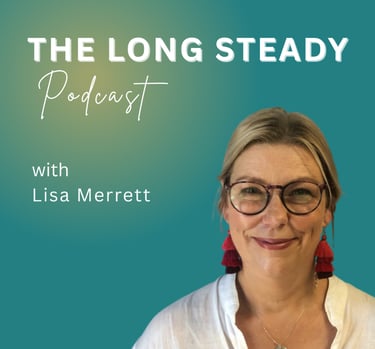I help people reconnect with who they are and how they work best — so confidence builds, communication feels clearer, and both life and work feel more manageable.
Clarity and confidence for people and workplaces


For Workplaces
Many organisations are working hard to meet psychosocial obligations. But leaders know that compliance alone doesn’t shift culture. It might meet governance requirements, yet still leave people stressed, disconnected, and unsure how to speak up or do their best work.
The real challenges may show up as:
communication becomes cautious
leaders second-guess decisions
team tensions simmer rather than surface
staff disengage or burn out
absenteeism rises and performance slips
good people lose confidence
These aren’t “performance problems.”
They’re values alignment and psychological safety problems — and they carry real commercial consequences.
I partner with workplaces to understand what’s actually happening beneath the surface, and to support leaders and teams to rebuild clarity, trust, and confidence into their strategies.
Culture changes when people feel engaged - not when policies grow thicker.
Values aren’t posters or statements — they’re the behaviour people experience every day. When values are unclear or inconsistently lived, uncertainty grows. And uncertainty drives disengagement, stress, and risk.
Confidence works the same way. Leaders who doubt themselves hesitate. Teams who don’t feel safe hold back ideas. Culture becomes careful instead of collaborative.
When values, confidence, and psychological safety align, people contribute more fully — not because they’re told to, but because it feels possible.
This is the work that strengthens culture from the inside, not by adding more training or policy, but by creating the conditions where good work can actually happen.
Why Values, Confidence, and Engagement Matter
Meeting WHS psychosocial requirements is important — but it doesn’t, on its own, create a healthy culture. Policies define expectations, but they can’t build trust, confidence, or engagement.
My work focuses on what sits underneath compliance, the human experiences, behaviours, and pressures that shape whether people feel safe and capable day to day.
When those conditions improve, psychosocial risks naturally reduce — not because more policies were added, but because people experience the culture differently.
This is the gap many workplaces are struggling with — and it’s the gap that quietly drives disengagement, absenteeism, and the performance issues leaders feel but can’t always name.
This Isn’t WHS Psychosocial Box-Ticking




For Individuals
Personal and professional growth often depend on the same things — how we handle pressure, doubt, long-term goals, and the moments where we’re unsure we can keep going. For some people, that shows up at work. For others, it shows up through a personal challenge that mirrors the same demands.
A marathon is one of those challenges.
It draws on the same qualities that support strong leadership and steady professional confidence:
holding a long-term goal alongside day-to-day pressures
showing up when motivation dips
navigating uncertainty and discomfort
building confidence through repeated action
managing emotional load during stressful periods
recovering from setbacks without giving up
learning how to pace yourself sustainably
staying connected to meaning in demanding seasons
These are the same skills that help people make clearer decisions, communicate with more confidence, and stay grounded at work.
I support everyday women preparing for their first marathon to work through the inner side of that journey — the mindset, self-belief, and emotional steadiness that sit underneath any meaningful challenge, personal or professional.
This isn’t fitness coaching or training plans — and I don’t step into clinical advice. But more than twenty years as a podiatrist means I understand the very real worries women carry about injury, age, recovery, and starting again. I also understand how perimenopause and menopause can affect energy, motivation, sleep, and the way stress shows up in the body.
Most people don’t seek coaching because they’re lost — they seek coaching because something matters enough to pay attention to.
A decision. A transition. A feeling of pressure. A sense that things can’t keep going the way they are.
I support individuals who are navigating:
leadership steps or new responsibilities
career transitions or returning to work
imposter patterns and self-doubt
burnout or loss of clarity
wanting more meaning or direction
big personal goals that feel exciting and intimidating at the same time
Coaching gives you space to slow down, think clearly, and move forward in a way that feels grounded and sustainable.
Coaching for people navigating change


Where Marathon Mindset Coaching Fits
About Lisa


I’m Lisa — a coach and consultant who cares deeply about how people feel at work and in their own lives. My focus is on confidence, engagement, values, and psychological safety, because these are the things that shape whether people feel steady, capable, and able to contribute in a way that feels real.
My background spans more than twenty years as a podiatrist and practice owner, followed by work in community and mental health. I’m not a practising clinician anymore, but those years taught me how people cope under pressure, how they navigate uncertainty, and how much clarity and compassion matter when someone is trying to move forward., confidence and psychosocial wellbeing so people feel safe to contribute — and workplaces function better.
I’ve seen the same patterns across individuals, teams, and workplaces:
confidence and engagement aren’t abstract concepts — they show up in everyday behaviour. In how people speak up, make decisions, relate to one another, and back themselves. When those things shift, everything else shifts with them: culture, performance, and a person’s sense of what they’re capable of.
My work is values-informed, practical, and human. I don’t use formulas or try to “fix” people. I create a psychologically safe space for honest reflection and grounded support, helping people understand what sits underneath their reactions, choices, and patterns. From there, confidence becomes something steady rather than something they’re constantly chasing.
A meaningful part of my coaching also includes supporting women preparing for their first marathon — not as athletes, but as people committing to something important for themselves. Training for a marathon mirrors many aspects of personal and professional growth: navigating doubt, pacing yourself, holding a long-term goal, and showing up through the messy, uncertain parts of life.
I attempted my first marathon at 40, completed one at 45, and now I’m training again. I understand what it’s like to return to something demanding while managing work, family, perimenopause or menopause, fatigue, and the emotional load that comes with real life. My years as a podiatrist also mean I understand the practical worries women have about injury, age, and starting again — not from a clinical stance, but from years spent listening to people’s stories and supporting them through change.
And a word on perimenopause. Too often, the connection between hormones and anxiety is overlooked or minimised. When anxiety spikes during this transition, it can shape how we show up at work — a presentation that suddenly feels shaky, trouble concentrating, or a difficult conversation that lands harder than it normally would. These moments can unsettle even the most capable women and quietly trigger the cycle of self-doubt or imposter feelings.
Across all of my work — with leaders, teams, and individuals — the thread is the same: clarity, values, confidence, and psychologically safe support for people who are trying to move toward something meaningful.
A grounded, human approach to confidence, clarity, and meaningful change.


My guiding principles
You already hold the answers.
No book, mentor, or coach can hand you your truth wrapped up neatly. Your life, your values, your direction — only you can decide what they look like. My role is simply to walk alongside you, help you see things clearly, and support you to trust what you already know.
We all carry an invisible script.
The “shoulds,” expectations, and quiet pressures of everyday life can feel heavy. They shape how we think, act, and make decisions — often without us realising. You always have a choice, though: to pause, tune out the noise, and listen to yourself with more compassion and clarity.
You're here to make an impact-in your own way
Impact doesn’t have to be dramatic or public. It shows up in the way you support others, lead a team, care for your family, or make choices aligned with your values. Small, consistent actions create the kind of ripple people feel.
Change asks for courage
Feeling stuck doesn’t mean you’re doing something wrong — it means you’re human. Your brain is wired to keep you where you are, even when something needs to shift. Growth usually brings discomfort first, and that’s not failure. It’s part of the process.
It’s not about doing more
Pushing harder isn’t the answer. Often the real work is changing your relationship with your thoughts, emotions, and expectations — so your actions become more intentional, not more frantic. When the pressure to perform drops, clarity rises.
You are already enough
Right now, you are capable, resourceful, and whole — even if you don’t always feel it. You don’t need fixing. You simply need the confidence and clarity to use what you already have to build the life or work you want.


Frequently Asked Questions
What is coaching and how can it help?
Coaching is a collaborative process where we work together to clarify your goals, uncover challenges, and develop strategies for personal or professional growth. It helps you gain clarity, improve decision-making, and build confidence in navigating transitions and challenges.
How do I know if coaching is right for me?
If you're feeling stuck, overwhelmed, or unsure about your next steps, coaching can provide the clarity and support needed to move forward. Coaching is ideal for individuals who want to make meaningful changes and are open to exploring new possibilities. Plus, there's your free discovery call to explore this further.
Is coaching the same as mentoring?
No - mentoring offers advice and expertise while coaching empowers action.
Coaching is goal focused, action oriented and builds self awareness in overcoming limiting beliefs and challenges.
When mentoring and coaching are combined, the advice received during mentoring sessions can be explored and expanded upon through coaching, helping to turn insights into actionable steps and overcome any barriers that may be hindering progress.
How can I afford coaching?
I understand that coaching is a financial commitment — and it’s not always an easy one to make. But it’s also a an investment in your clarity, confidence, and direction. Coaching can help you avoid costly setbacks, reduce burnout, make clearer decisions, and stay aligned with what matters most — saving time, energy, and money in the long run.
To make coaching more accessible, I offer flexible payment options, including single sessions, multi-session packages, and payment plans.
Would Your Employer Support Your Coaching?
If you’re currently employed, it’s worth asking whether your employer can contribute to or fully cover your coaching. Many organisations — especially those in industry, leadership, and frontline roles — have professional development or wellbeing budgets set aside for exactly this kind of support. Coaching strengthens leadership capability, builds resilience, and improves team dynamics — all outcomes that benefit your workplace too.
I’m happy to provide a letter that outlines how coaching supports professional development, communication, and workplace wellbeing, to help with your request. Plus, it's tax deductible!
What is the ICF and why is it important?
The International Coach Federation (ICF) is a globally recognised body that upholds high standards in coaching, including a strict code of ethics and core competencies. I follow their ethical guidelines and competencies to ensure that my coaching is professional, effective, and client-centered. Adhering to ICF principles helps me provide quality coaching and maintain a commitment to continuous learning and professional growth.
Testimonials




Copyright © 2025 Prosperise Coaching. Powered by Prosperise Coaching.


The Long Steady
A short weekly podcast on the emotional load of staying committed — in running, work, and everyday life. If you prefer honest, steady insights over noise, you can listen here.
